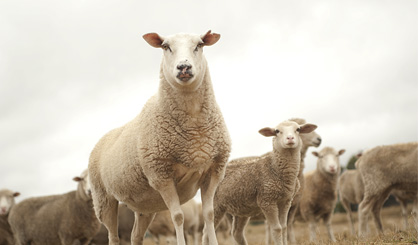Farmers urged to vaccinate store lambs

Farmers are being urged to check the status of bought-in store lambs and revaccinate if in doubt.
Farmers are being urged to consider vaccinating store lambs for clostridial disease and pasteurella this autumn as research shows the season brings a peak in these diseases.
A two-year study funded by AHDB Beef and Lamb, the organisation for beef and lamb levy payers in England, found there was a clear peak in pasteurella cases during autumn, particularly septicaemic pasteurellosis. One in seven lambs submitted to the project for post-mortem at a fallen stock collection centre had died as a result of pasteurella septicaemia or pasteurella pneumonia.
Pasteurella is opportunistic and requires a trigger such as worms, border disease, trace element deficiency, adverse weather or overstocking. Farmers keeping store lambs during the autumn/winter seasons are advised to vaccinate before any anticipated triggers, such as adverse weather or being moved.
Lambs vaccinated when they are young should be given a booster as immunity may have been lost by autumn.
Nearly one in eight lambs submitted to the project died of clostridial disease including pulpy kidney, red gut and lamb dysentery. While the main peak was in spring, there was a second peak in early autumn, AHDB says.
The peak could be triggered by gut flora, notably the proliferation of clostridia, which occurs as a result of changes to the diet.
Fed lambs are at particular risk if the do not receive a booster vaccination prior to dietary changes, as immunity gained from colostrum at birth may have waned by this point.
Farmers are being urged to check the status of bought-in store lambs and revaccinate if in doubt. AHDB says a booster will also help to reduce losses form pasteurella.



 The veterinary mental health charity Vetlife is inviting the veterinary community to join it for a sponsored cold-water dip.
The veterinary mental health charity Vetlife is inviting the veterinary community to join it for a sponsored cold-water dip.